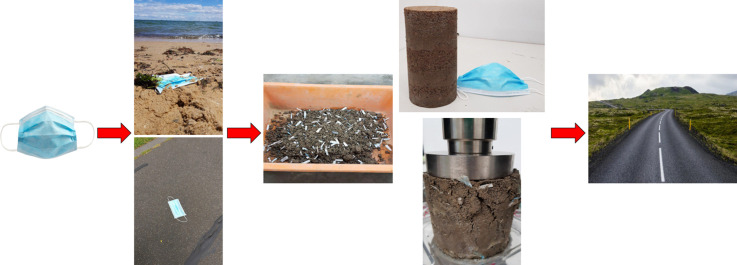- Record: found
- Abstract: found
- Article: not found
Repurposing of COVID-19 single-use face masks for pavements base/subbase

Read this article at
Abstract
The coronavirus (COVID-19) pandemic has not only created a global health crisis, but it is also now threatening the environment. A multidisciplinary collaborative approach is required to fight against the pandemic and reduce the environmental risks associated with the disposal of used personal protective equipment (PPE). This paper explores an innovative way to reduce pandemic-generated waste by recycling the used face masks with other waste materials in civil constructions. In this research, for the first time, a series of experiments, including modified compaction, unconfined compression strength and resilient modulus tests, were conducted on the blends of different percentages of the shredded face mask (SFM) added to the recycled concrete aggregate (RCA) for road base and subbase applications. The experimental results show that RCA mixed with three different percentages (i.e., 1%, 2% and 3%) of SFM satisfied the stiffness and strength requirements for pavements base/subbase. The introduction of the shredded face mask not only increased the strength and stiffness but also improved the ductility and flexibility of RCA/SFM blends. The inclusion of 1% SFM to RCA resulted in the highest values of unconfined compressive strength (216 kPa) and the highest resilient modulus (314.35 MP). However, beyond 2%, increasing the amount of SFM led to a decrease in strength and stiffness.
Graphical abstract
Related collections
Most cited references71
- Record: found
- Abstract: found
- Article: not found
Minimising the present and future plastic waste, energy and environmental footprints related to COVID-19
- Record: found
- Abstract: found
- Article: not found

